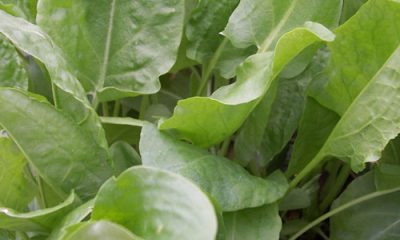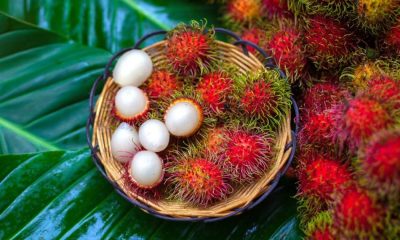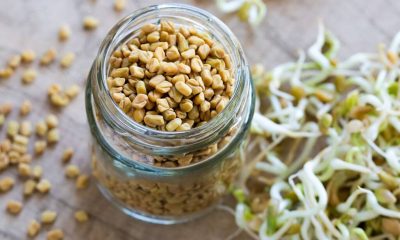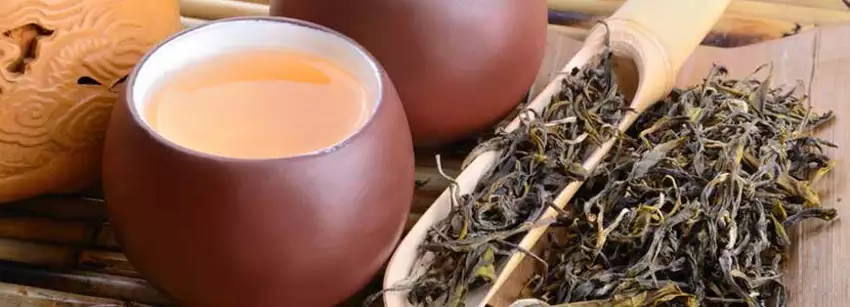Health
Benefits of oranges and side effects
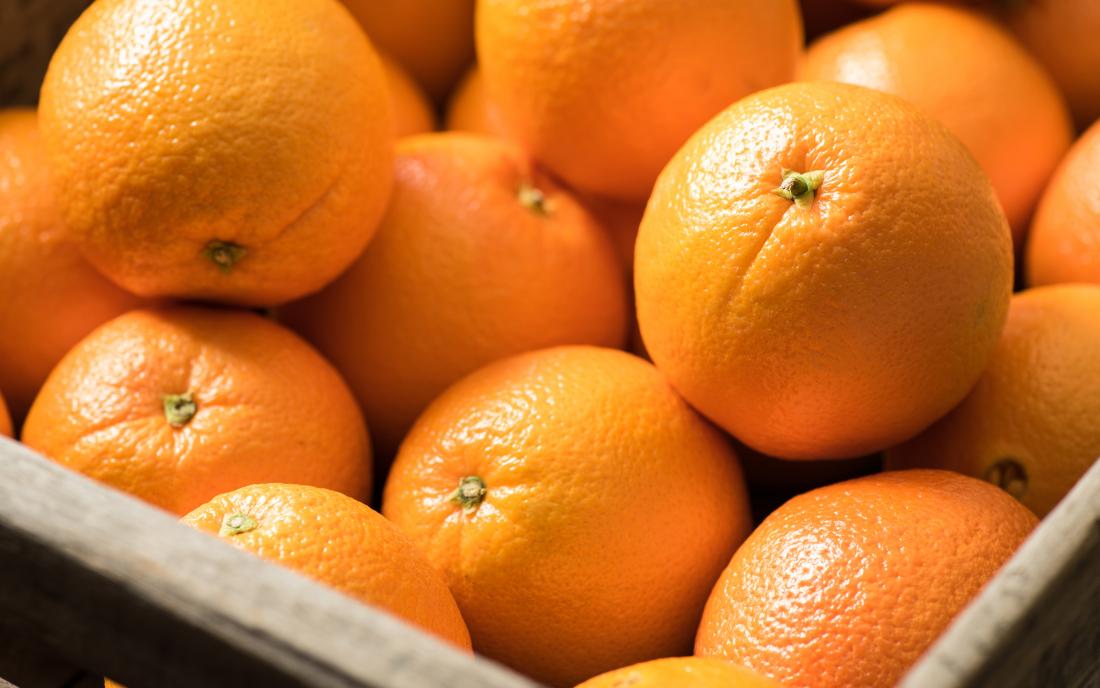
Discover the amazing health benefits of oranges and side effects.
After long months exposed to the sun’s rays, the orange is offered in the middle of winter as a juicy gift of vitamins and minerals that strengthens the defenses.
In winter, time for oranges. Taking them as fruit or in juice is one of the best options to fill yourself with energy and protect yourself against infections.
But they also offer a huge variety of possibilities to experiment in the kitchen. The uniqueness of this citrus so present in our daily life is such that it even defines one of the colors of the rainbow, orange.
The sweet orange has its origin in the Far East, from China to the Malay Peninsula, although there are those who place it specifically in Vietnam. Oranges are related to the golden fruits of the Garden of the Hesperides in Greek mythology.
In China it is considered a symbol of good fortune and is usually consumed on the second day of the New Year’s party, and in Vietnam it is given to newlyweds, as a symbol of fertility.
Its cultivation spread throughout the East and the Arabs introduced it to Europe through Spain in the 10th century. Columbus himself, on his second trip, took the seeds to America, to the island of Hispaniola (Haiti).
The word orange comes from the Arabic word narandj or naranch , and this from the Persian narang, which in turn derives from the Sanskrit word nagarunga (“the favorite of elephants”, alluding to a legend of a hungry elephant).
Nutrition facts of orange
This juicy winter treat provides all the vitamin C you need each day. This nutrient is essential for resistance to infections (orange juice is not in vain the most used natural resource to prevent colds and flu); increases the absorption of iron, calcium and phosphorus and has antioxidant properties.
But vitamin C is not the only interesting component. The fiber gives the orange digestive properties and the flavonoids collaborate with the vitamins in strengthening the immune system.
Oranges are also rich in thiamine and folic acid, two B vitamins essential for the health of the nervous system. The Sanguine naranajas , red, are also characterized by its richness in beta – carotene.
Health benefits of oranges
Below are the health benefits of oranges:
The peculiar nutritional composition of the orange is related to a series of indications.
1. STRENGTHENS IMMUNITY
Oranges should be in everyone’s diet, but they are especially suitable for those who are low in defenses and are more prone to colds, flu, respiratory allergies or herpes infections. They are antiviral and antibacterial, and neutralize the action of free radicals.
2. IN CASE OF ANEMIA
Orange is also advisable for anemic people and young women who suffer from heavy menstruations, since its vitamin C favors the absorption of iron.
3. REGULATES CHOLESTEROL
The pectin in oranges helps lower cholesterol levels in the blood. Recent scientific studies, carried out from compounds isolated from the peel of the orange – polymethoxylated flavones – have offered better results in reducing LDL cholesterol than some of the drugs prescribed for it, with the advantage that they do not present side effects.
In addition, due to its richness in magnesium , which thins the blood and prevents the formation of clots, it protects against the risk of cardiovascular disorders and stroke.
Taking oranges regularly is also recommended to prevent varicose veins and hemorrhoids, as they protect blood vessels and promote good circulation.
4. DIGESTIVE WELLNESS
Another of the health benefits of oranges is that they act as a stomach and intestinal regulator to relieve gastric spasms and slow and heavy digestions or dyspepsia.
Also, they are carminative in those who are prone to gas, bloating and flatulence. As it is slightly laxative, it is also suitable for constipation problems.
Their high potassium content makes them suitable for hypertensive.
5. STRONG BONES
As a source of vitamin C and calcium, they are very suitable to protect bones and teeth. They are highly recommended to strengthen the joints and reduce the inflammation of rheumatoid arthritis and osteoarthritis.
6. REMOVES IMPURITIES
Oranges favor the elimination of uric acid through the urine and are purifying. They prevent the formation of stones in the kidney and infections in the urinary tract, such as cystitis. They are very useful for people with arthritis and gout problems.
By stimulating the purifying functions of the liver and kidneys, and due to their low caloric value, they are valid for weight loss.
7. QUALITY ENERGY
Orange is rich in fast absorbing sugars. That is why it is excellent for outdoor sports activities: hiking, cycling, cross-country races … It is not only well tolerated by diabetics, but even recommended.
8. ANTICANCER
Due to its antioxidant effect, some scientific studies link the regular consumption of oranges with the possibility of reducing the risk of certain types of cancer, such as stomach and colon cancer.
One of the reasons is that this fruit prevents nitrites provided by food from being transformed into carcinogenic nitrosamines.
The orange on the table
The best way to enjoy the aroma and delicacy of the orange is by taking it natural, as a tabletop fruit, or as juice.
VARIETIES OF ORANGES
Within the sweet orange tree, numerous varieties are known, included in three basic groups: blood or red oranges, white (such as Valencia Late or Salustiana) and navel-type sweets, with a navel-shaped protrusion at one end.
Navel oranges. They are tasty and do not contain seeds, but they are not very suitable for juice, because they do not contain much juice and they tend to bitter quickly. Instead, its thick crust is excellent for candying.
Valencia Late. It is perhaps the most consumed in the world. It gives a lot of juice, with a subtly acid flavor. It is a somewhat elongated orange, with a thin rind, with or without seeds in the pulp, which ripens in late spring.
Salustiana orange. From the white group, it is a large orange with a sweet taste, with more carotenes, which hardly contains seeds. It is harvested from November to March and is usually used to obtain juice, although it is also very appropriate for salads in the form of loose segments.
Blood orange. With fine and smooth skin, it is very juicy. It is clearly distinguished by being tinted with a precious garnet red, very suitable for highlighting desserts. It is ideal for juices and very antioxidant. Today it is not easily found, as it is only grown in the Mediterranean and requires special conditions, such as low night temperatures.
Sevillana. It is the most important variety among bitter oranges. Medium in size, slightly flattened at the ends and with thick and rough skin. Its bitter taste makes it unsuitable to be eaten raw but it is ideal for preparing jams and certain bittersweet sauces or for flavoring liqueurs.
IN THE KITCHEN
The zest of the orange peel can substitute the lemon zest in many recipes such as custard, milk pudding, etc. The segments can be added to salads with watercress, endives, beets, red onion, lamb’s lettuce, endive, and other fruits.
When cooking, whether it is sweet desserts or savory dishes, they can be spiced with cinnamon, cardamom, ginger, tarragon etc.
They combine very well with dark chocolate and carob, and are essential in fruit salad, to which they give juiciness and texture, in addition to helping other fruits such as banana do not blacken.
We hope the article on the amazing health benefits of oranges has been of help to you
Health
14 Benefits of Oolong tea and side effects Table of Contents
Health
Contraindications of drinking green tea

Discover the contraindications of drinking green tea.
Drinking green tea in excess can cause some harmful side effects for the body, which are necessary to know
Green tea is one of the most popular in the world. In addition to having a characteristic flavor, its different properties make it a highly beneficial drink for health, mainly due to its antioxidant power. However, its consumption also includes a series of contraindications
Among the benefits of green tea highlights its ability to improve memory, helps lose body fat, increases physical performance, is stimulating, can prevent different types of cancer, and even reduce the risk of cardiovascular diseases.
Among all the types of green tea that exist, matcha stands out, a tea of oriental origin with important properties for health and that stands out for its powder composition. In recent years it has become the travel companion of celebrities, athletes, and famous people.
Contraindications of drinking green tea
Many people have incorporated green tea into their day-to-day. The truth is that it is a great choice since it can provide energy to face the workday, accelerate the metabolism, and can even help improve mood.
However, like any food, the consumption of green tea carries a series of contraindications that it is necessary to know.
Thus, from ‘Todo Disca’ we are going to expose some of the negative effects that the ingestion of this type of infusions can produce.
In this sense, researchers from the National Institute of Health of the United States affirm that the consumption of green tea mixed with different medications, such as contraceptive pills, antibiotics, stimulants, or alcohol can be harmful to health.
And these are some of the side effects that excess green tea consumption can generate for the body:
1. Irritability: Some people feel some discomfort at the time of their intake. That is to say, it produces an effect contrary to the one they seek at first.
2. Insomnia: Green tea can cause sleep problems for many people. And is that it is a stimulating drink that contains some doses of caffeine, although in a lower proportion than traditional coffee.
3. Dizziness and nausea: This infusion can be heavy for delicate stomachs and generate some type of gastrointestinal discomfort. Therefore, it is not advisable to take on an empty stomach.
4. Palpitations: Due to its stimulating characteristics, it can sometimes cause palpitations. Along these lines, experts recommend reading the indications and ingredients of all types of tea.
5. Disadvantages during pregnancy: Green tea is rich in tannins, so it can reduce the absorption of folic acid and iron. Due to this, this drink is not recommended for pregnant or lactating women.
Generally, green tea is an infusion with excellent health properties. In this way, moderate consumption usually brings different benefits to the body.
However, it is advisable to take these contraindications into account, and if you feel any side effects, see a medical specialist.
Through the following link, you will be able to know the contraindications to drink matcha tea, a variety of oriental origin widely established in Europe and whose consumption has become popular in recent years
Health
15 Benefits of pumpkin seeds and side effects

Table of Contents
- 1. Pumpkin seeds to boost the immune system
- 2. They are high in magnesium
- 3. Pumpkin seeds are low in calories
- 4. Pumpkin seeds are rich in iron
- 5. Relieve symptoms of irritable bladder
- 6. Pumpkin seeds are high in fiber
- 7. Benefits of pumpkin seeds for cholesterol
- 8. Pumpkin seeds are a natural anti-inflammatory
- 9. Pumpkin seed oil to counter the effects of menopause
- 10. Pumpkin seeds help healthy skin, hair and nails
- 11. Pumpkin seeds help eliminate kidney stones (kidney stone)
- 12. Pumpkin seeds are rich in vegetable protein
- 13. Pumpkin seeds are a great substitute for peanuts
- 14. benefits of pumpkin seeds on your hormonal health
- 15. Pumpkin seeds are a good source of potassium
- Discover the 15 powerful health benefits and virtues of pumpkin seeds and side effects.
They are packed with nutrients and vitamins, are high in protein, fiber and are low in calories!
-
1. Pumpkin seeds to boost the immune system
Pumpkin seed helps boost the immune system , especially because it is rich in zinc.
Remember that zinc allows the proper functioning of the immune system by ensuring optimal activity of T lymphocytes. Zinc could also help the body to better protect itself against colds, flu, conjunctivitis and other infections.
2. They are high in magnesium
Anxiety , migraines, muscle cramps and PMS can result from magnesium deficiency. A 28g serving of pumpkin seeds provides almost 20% of the recommended daily allowance.
The magnesium intervenes in the transformation of food into energy, the transmission of nerve impulses, muscle relaxation and the formation of bones and teeth.
- Acting with calcium and potassium, it regulates the heart rate and participates in the production of insulin.
Several studies have also demonstrated the virtues of magnesium in the prevention of cardiovascular disease.
3. Pumpkin seeds are low in calories
Pumpkin seeds are lower in calories than many nuts. A 28g serving of pumpkin seeds (2 tablespoons) without their raw shell has 126 calories, which is almost 40 calories less than almonds and 60 calories less than walnuts for a single serving.
4. Pumpkin seeds are rich in iron
Pumpkin seeds are a great source of iron. A 28g serving of pumpkin seeds provides almost 5% of the recommended daily allowance.
Remember that iron is essential for health and is involved in a multitude of functions in the human body, in addition to transporting oxygen through the body.
However, iron from plant sources is not as well absorbed as iron from animal sources. In this sense, it is recommended that vegetarians consume twice as much iron in order to ensure that they do not suffer from deficiencies that may in particular cause fatigue and weakness.
5. Relieve symptoms of irritable bladder
While more scientific studies are to be conducted on the subject to understand all of its mechanisms, pumpkin seeds are believed to help relieve symptoms of irritable bladder and urination disorders associated with benign prostatic hyperplasia (BPH). .
6. Pumpkin seeds are high in fiber
Pumpkin seeds also provide a healthy dose of fiber . A 28g serving of pumpkin seeds provides 5g of fiber, or 20% of the recommended daily intake.
In addition to calming hunger, fiber promotes healthy digestion and helps regulate bowel function.
7. Benefits of pumpkin seeds for cholesterol
The phytosterols in pumpkin seeds help lower ” bad” cholesterol levels . Phytosterol is the plant equivalent of cholesterol. However, rather than blocking the arteries, phytosterol rather helps to clean them, recalls WebMD.
8. Pumpkin seeds are a natural anti-inflammatory
Source of antioxidants, pumpkin seeds have an anti-inflammatory effect and thus help defend the body against damage caused by excess free radicals .
If free radicals oxidize DNA (the body’s genetic code) in a cell’s nucleus, a cell mutation can occur, which can start cancer. Oxidation of cholesterol in the blood can lead to the formation of fatty deposits in the arteries, which can lead to heart disease or stroke.
Excess free radicals are also involved in cataracts, immune deficiencies, arthritis and premature cell aging; their role in these diseases is the subject of intensive research.
9. Pumpkin seed oil to counter the effects of menopause
Researchers have studied the impact of pumpkin seed oil in better combating symptoms of menopause , including hot flashes and headaches.
While further studies need to be done, pumpkin seed oil has been shown to be effective in alleviating these symptoms in the subjects of this research.
10. Pumpkin seeds help healthy skin, hair and nails
The pumpkin seeds contain essential fatty acids, zinc, vitamin A and vitamin E . These nutrients help maintain glowing skin , strong, healthy hair and nails .
While more research is needed to confirm these benefits, a study with 76 participants also looked at the benefits of pumpkin seed oil in helping hair regrowth in men with alopecia.
In subjects who consumed 400mg of pumpkin seed oil for 24 weeks, regrowth was 40% greater than participants who took a placebo.
11. Pumpkin seeds help eliminate kidney stones (kidney stone)
Pumpkin seeds are also said to prevent kidney stones from forming . To better counter kidney stones, it is also recommended to drink plenty of water, limit sodium intake, and consume no more than 2g of vitamin C on a daily basis.
The kidneys are designed to remove particles of salts and minerals that end up in the ureter, a long, narrow duct leading to the bladder; they will then be expelled in the urine.
Problems arise when a chemical imbalance or other deficient process promotes the agglutination of particles, which turn into crystals and then into a kidney stone.
12. Pumpkin seeds are rich in vegetable protein
This food is also a good source of vegetable protein . A 28g serving of pumpkin seeds provides 5g of protein, or 10% of the recommended daily allowance.
The proteins include the ability to develop and maintain the muscles, in addition to help regulate and control hunger cravings.
Vegetarians and vegans, however, should make sure that their diet meets all their amino acid needs by combining different sources of plant protein (legumes and grain products, for example).
13. Pumpkin seeds are a great substitute for peanuts
In 10 years, cases of peanut allergy have doubled, forcing several schools to ban this food. Pumpkin seed butter is a good alternative.
At lunch or as a side dish for a snack, it will provide children with some of the essential fatty acids and proteins they need.
14. benefits of pumpkin seeds on your hormonal health
Pumpkin seeds may help women with hormonal imbalance due to the phytoestrogens they contain. However, further scientific studies need to be carried out to this effect.
The Extenso Nutrition Reference Center reminds us that phytoestrogens are compounds of plant origin which, when consumed in sufficient quantities, can act on your body in a manner similar to estrogen.
In addition to regulating the menstrual cycle, I pregnancy, and breastfeeding, estrogen helps prevent demineralization of your bones and keeps your blood vessels healthy.
15. Pumpkin seeds are a good source of potassium
Finally, pumpkin seeds provide a good source of potassium. A 28g serving provides 260mg of potassium , or nearly 7% of the recommended daily allowance.
Potassium is present in the form of a solution in the body and almost all of it is concentrated inside cells.
Like chlorine and sodium, it is an electrolyte, a substance that charges positively or negatively when dissolved.
The body needs a balance between potassium, chlorine and sodium to perform a multitude of essential functions.
We hope the article on the 15 powerful health benefits of pumpkin seeds has been of help.
-

 Benefits4 months ago
Benefits4 months agoThe Benefits of Joining Gym Lumolog – Improve Your Fitness & Health
-

 Food1 year ago
Food1 year ago10 + Benefits of carrot juice and side effects
-

 Health1 year ago
Health1 year ago50 Super Healthy (And Very Often Cheap) Foods
-

 Health1 year ago
Health1 year ago5 Shocking health benefits of kinkeliba and side effects
-

 Health1 year ago
Health1 year ago15 health benefits of soursop leaves tea and side effects
-

 Food1 year ago
Food1 year ago8 shocking benefits of leek juice and side effects
-

 Health1 year ago
Health1 year ago15 Benefits of lipton tea and side effects
-

 Health1 year ago
Health1 year agoBenefits of guava leaves Sensually



